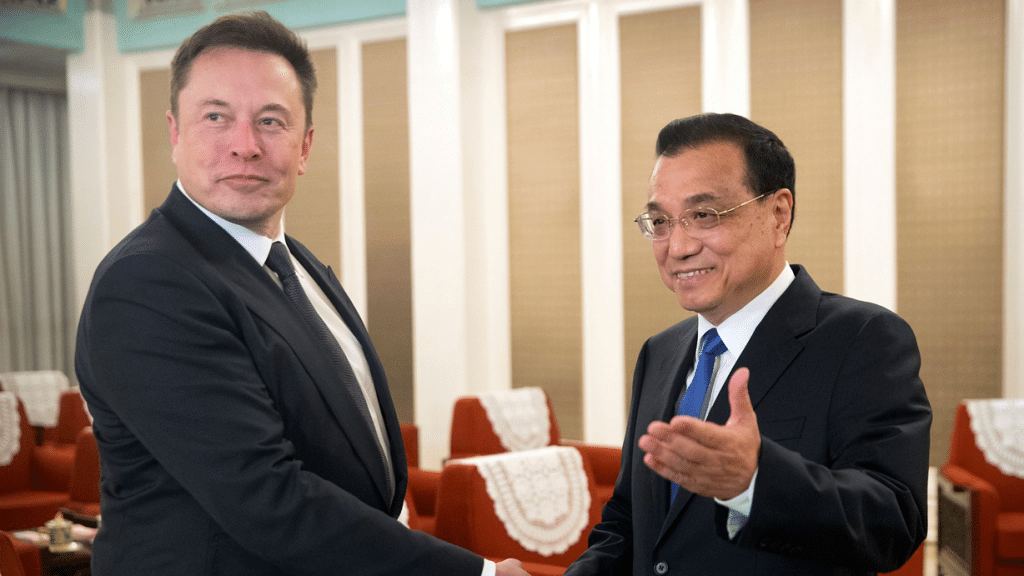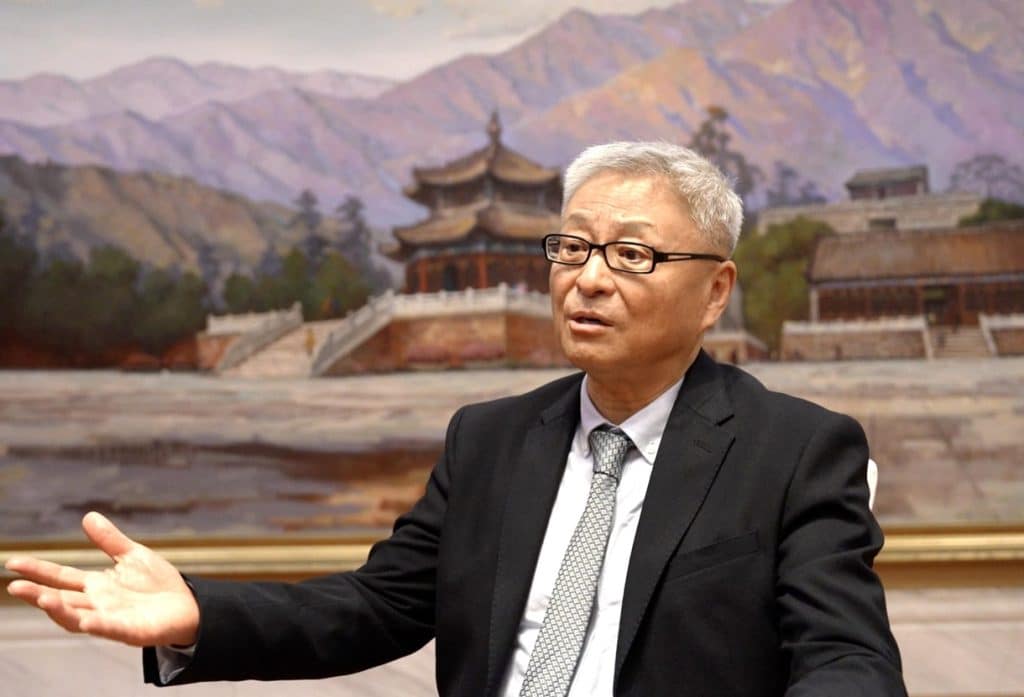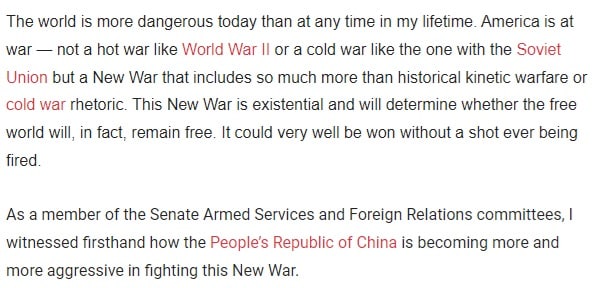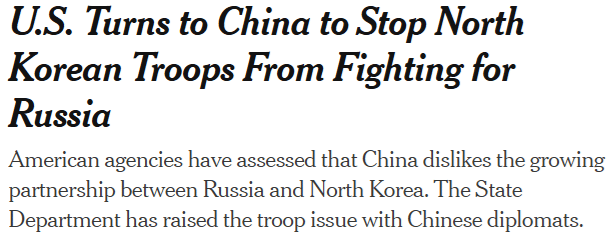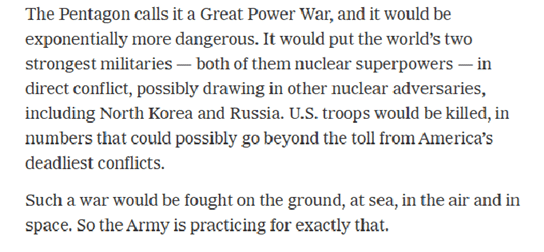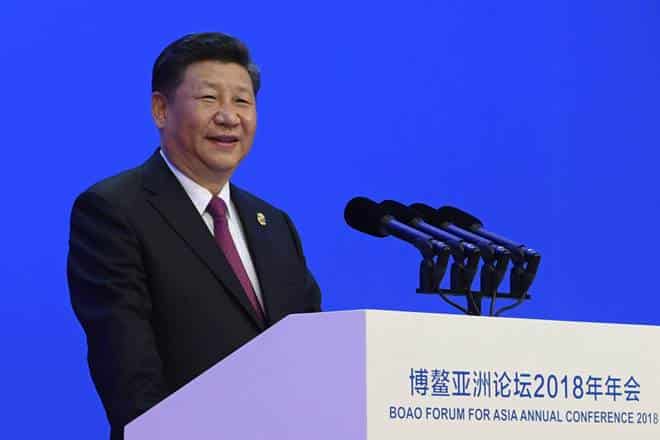Challenges to US-China Relations—A Chinese Perspective
作者:Emily Calvert 来源:US-China Perception Monitor
Professor Yufan Hao recently gave a lecture to the staff and interns at The Carter Center entitled “Challenges to US-China Relations: A Chinese Perspective.” His presentation centered on the argument that as the US and China have come to understand one another more, they have paradoxically become more distrustful of one another.
In his presentation, Professor Hao offered a unique take on Sino-US relations, examining the relationship from a Chinese perspective. According to Hao, China and the United States have shared a complicated and often contentious history. Drawing upon this complex alternation between cooperation and conflict, as well as his own experiences with Sino-US “intense bilateral collaboration” and individual research, Professor Hao analyzed the current and future state of US–China relations, highlighting the sources and consequences of the growing suspicion between these two nations.
In his lecture, Professor Hao emphasized that there is increasing mistrust between the United States and China, a mistrust that has developed after (and in spite of) three decades of collaboration between the two nations. While cooperation has increased the mutual understanding between the United States and China, Professor Hao identified a crucial paradox: the more we understand each other, the more we distrust each other. Once this mistrust is present, every action of the opposing nation becomes open to various, and often negative, interpretations. Professor Hao noted that it ultimately does not matter whether the perception of an action is divergent from reality; perception is ultimately what drives politics and policy. Currently, much of the mistrust stems from perceptions about the United States’ policy towards China and the United States’ reactions to China’s policies. In China, many of the United States’ actions, especially its recent “pivot to Asia,” are interpreted as actions designed to contain China and contribute to an overriding sense of mistrust.
The relationship between the United States and China has been shaped by centuries of interaction, which in turn has molded their perceptions of each other and their unique foreign policy goals. The “Century of Humiliation” China endured at the hands of Western powers has shaped its strictly non-interventionist policy, which has frequently put China at odds with the United States and its mission to spread democracy. Most recently this issue has manifested itself in the cases of Iran, North Korea, and Syria. Additionally, from 1949 to 1972, the United States was viewed as virtually the only threat to Chinese national security, although in the late 1960s Russia was also considered an enemy. Deng Xiaoping changed these perceptions. His policy of keeping a low profile (taoguang yanghui, 韬光养晦) helped decrease American suspicions, while his reforms caused a surge of hope, both at home and abroad, about China’s democratic future—hope that turned to disappointment and mistrust after the Tiananmen Square Massacre on June 4, 1989. This mistrust has only increased as China’s economy has grown and Chinese leaders have become more assertive. After decades of cooperation, China again sees the United States as the only country that poses a security threat, while the United States is concerned about China’s growing power and influence.
China’s relationship with the United States has only grown more complicated in recent decades, especially concerning the conflicting attitudes towards democracy and America found among the Chinese population and its leaders. Professor Hao suggested several new strategies for dealing with this situation. He insisted that Chinese intellectuals are open to the suggestion of democracy, although they believe that the cost of American democracy is more than China can currently afford in terms of time, energy, and human capital. In the eyes of many Chinese, the Washington Consensus has failed, and should instead be replaced with a Chinese model—if not the Beijing Consensus, then at least a version of democracy with Chinese characteristics. In fact, Hao pointed out that some Chinese leaders now suggest that it is America, not China, who will be on the “wrong side of history”—that America’s interference in other nations’ sovereignty, especially in the Middle East, has hurt its moral standing. Therefore, within China we see support for democracy, but not necessarily support for America, compounded by a growing sense of nationalism that has been increasingly expressed on the Chinese web. In the opinion of many Chinese, America’s power peaked in the early 2000’s and has since been declining, while China’s star is only rising. China’s attitude towards the US is complicated by nationalistic and occasionally anti-American sentiment among the population, on one hand, and growing assertiveness and international political clout among the Chinese leadership, on the other.
These attitudes have led Chinese leaders to begin expanding their foreign policy and focusing on China’s relationship with other countries, especially African and Latin American nations, with the assumption that America will become less of a problem as its power declines. Professor Hao strongly objects to this attitude. He suggests that China should make the US-China bilateral relationship the center of its foreign policy, as the relationship will remain central to the future of both countries. He also suggests that China creates a mechanism for coping with US-China Relations that can accommodate a variety of possibilities, especially the possibility of a negative relationship developing between the two countries. Currently, according to Hao, no such mechanism exists; this creates a huge gap in China’s foreign policy and security. However, while Hao focused much of his discussion on the relationship between China and the United States, he emphasized that China must fix and reform its own domestic problems before it can overcome the challenges between the two nations. Only when China protects the human rights of its citizens and promotes democracy and rule of law within its borders can it begin to develop more productive and meaningful relationships with the rest of the world, especially the United States.
By Emily Calvert
Presented on June 12, 2012
Yufan Hao is full professor of political science and dean of the Faculty of School of Social Science and Humanities of the University of Macau in Macau, PRC. He received his PhD in International Relations from Johns Hopkins University in 1989. Professor Hao’s areas of expertise include Sino-U.S. relations, Chinese foreign policy making, Chinese politics, and Macao politics. In the spring of 2012, he joined the Brookings’ Center for Northeast Asian Policy Studies for its spring 2012 fellowship program.
Emily Calvert is studying International Studies and Chinese Language at Emory University in Atlanta, Georgia. She currently works as an intern for the China Program at The Carter Center.
来源时间:2018/4/6 发布时间:2012/6/13
旧文章ID:15856


